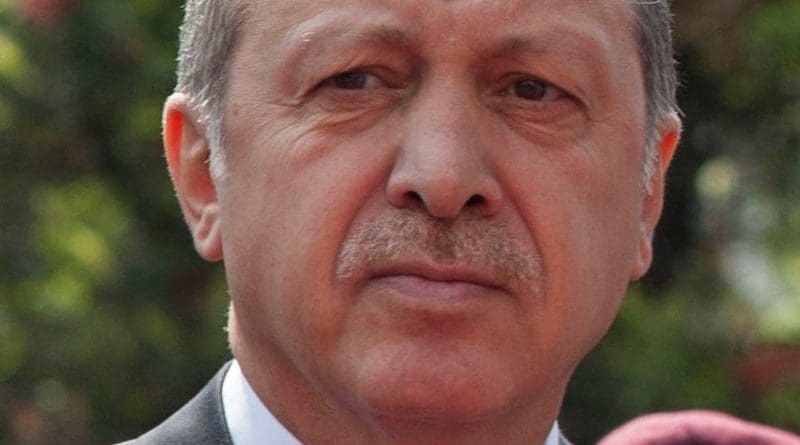Turkey’s CHP Party Accuses Erdogan Of Undermining Democracy
By EurActiv
By Georgi Gotev
(EurActiv) — A senior representative of the Turkish Republican People’s Party (CHP), harshly criticised the ruling AK party of President Recep Tayyip Erdoğan today (11 October) for undermining democracy after the failed coup attempt last July.
Speaking in Brussels at a public event organised by FEPS, the think tank of the European Socialists & Democrats (S&D), Öztürk Yılmaz, CHP Vice-President in charge of Foreign Affairs, warned of “unification of power” following the foiled coup.
“We see a Turkey getting worse and worse polarised, more polarised, more divided”, he said.
Yılmaz, who is a former ambassador, said that the CHP’s priority was getting rid of the state of emergency. In September, Erdoğan extended the state of emergency put in place after the coup attempt by three months.
Yılmaz made it plain that the government is using the state of emergency to rule via executive orders, instead of through the parliament, and to crackdown on the media. Ninety per cent of the media in Turkey are no longer free. All civil society organisations are controlled by the government, he said.
The coup gave Erdoğan the opportunity to proceed this way, Yılmaz said.
“Our priority is to get rid of this state of emergency situation, because this is suffocating us. We feel so much surrounded, so much helpless,” he said, speaking in English.
His statement appeared to contrast with previous statements of Kader Sevinç, the CHP representative in Brussels, who recently stressed that to the contrary, the coup had ended political polarisation in Turkey.
Sevinç was also a speaker at the event, but she preferred to focus on what the EU should do about Turkey.
Yılmaz said the 15 July coup attempt had been the struggle between the government and a “cult” which, for a long time, had been supported by the government. Indeed, Fetullah Gülen and Erdoğan were allies until 2011, and the AK party recruited many Gülenists to the country’s civil services.
Sevinç said that in order to help Turkey’s democrats, the EU should open the chapters 23 and 24 of the accession negotiations (judiciary and fundamental rights, and justice, freedom and security), as well as the chapter on Competition policy, which covers state aid law, and social policy and employment. She also slammed the Commission for not having translated the yearly progress report in Turkish, which allowed the Turkish government to publish biased and inaccurate translations.
Referring to the visit of Russian President Vladimir Putin to Turkey yesterday, Yılmaz said his country was becoming increasingly a “Putin-type of ruling”.
Relations with Russia will become a major element of Turkey’s foreign policy, but they should not become an alternative to the relations with the EU and the USA, he argued.
Regarding the prospects for a solution to the Cyprus problem, Yılmaz said he didn’t expect a solution before the end of 2016. He said a deal could only be successful if the two leaders – the President of Cyprus and the leader of the Turkish Cypriot community, will be able to obtain the “blessing” of their peoples. Otherwise it would be a “complete failure”, he said.
“We want a solution to the Cyprus problem more than you,” he said.
On the visa issue, Yılmaz said Turks were queuing to obtain visas at EU consulates “like Afghan refugees”.
“You need to use a new phase in EU-Turkey relations,” he said, arguing that the solution of the visa issue could be a good beginning. Asked if the EU should be strict on the conditionality that Turkey implements all the benchmarks, including the delicate issue of the definition of terrorism, Yılmaz said he is advising his EU friends to pass the decision directly through the Council, where member state sit.
“We are the only force [in Turkey] that could work with you, but because of lack of support we are losing ground,” Yılmaz said.

